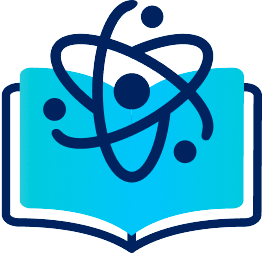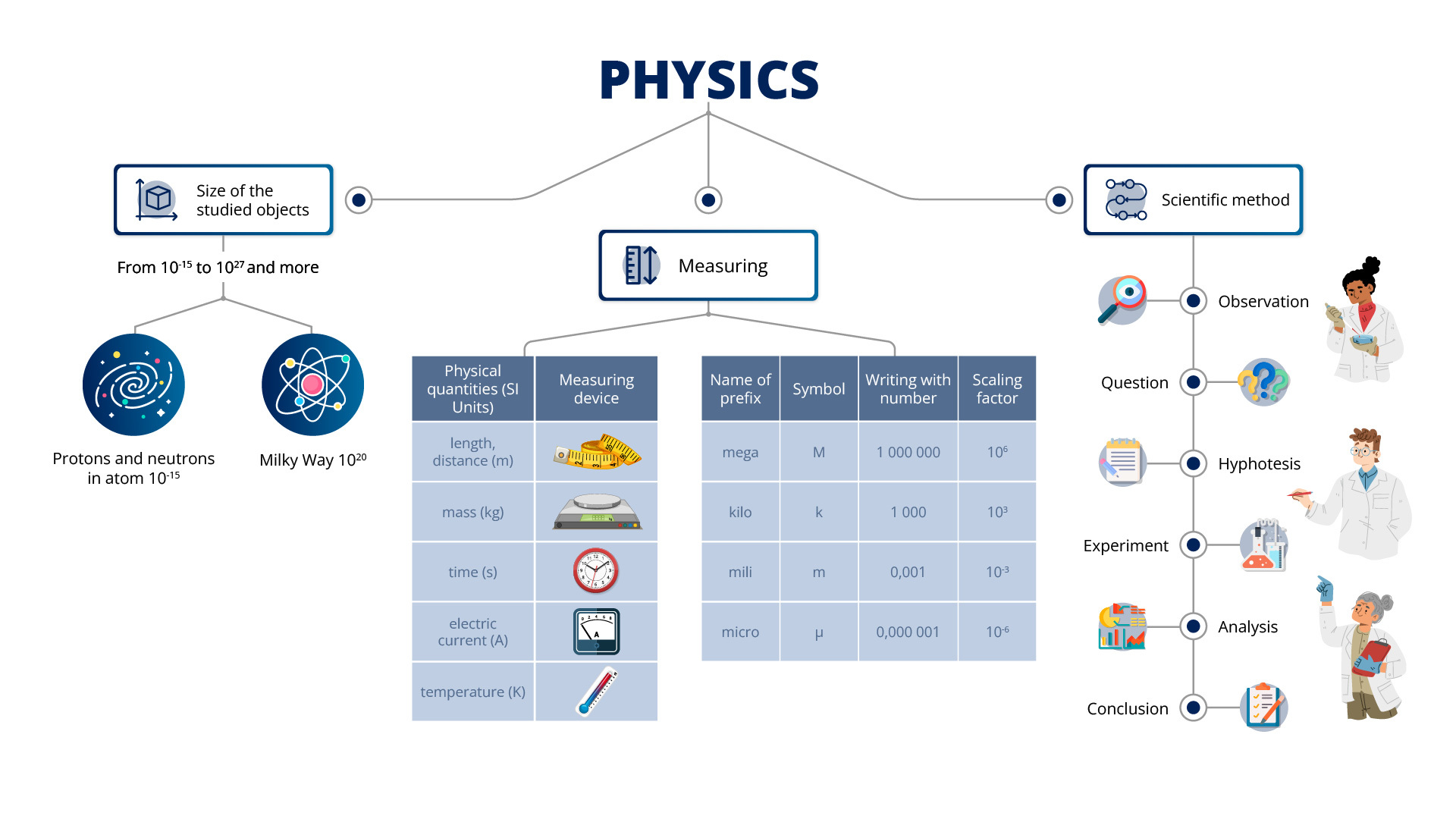PhysicsPhysics is the scientific study of matter, energy, space, and time, and of the relations between them. is a natural science that studies substances and natural phenomena. The focus of study is on physical changes, which have the property that they do not change the chemical structure of the substances. Experimental work plays an important role in physics. Measurement, which we encounter every day, is also of central importance.
In this chapter you will learn:
- What physics is as a natural science and why we need it
- How scientists work
- How we measure quantities in physics
The word physics comes from Ancient Greek (physis means nature).
Physics is the science of nature, which describes natural phenomena in terms of physical quantities and laws.
Physics studies objects from the very small to the very big, and from the beginning of our Universe to its end. It studies how these objects behave. It looks for patterns or rules in the way these objects behave.

PhysicsPhysics is the scientific study of matter, energy, space, and time, and of the relations between them. is closely linked to other disciplines: mathematics, chemistry, biologyBiology as a science is a methodological study of life and living things., medicineMedicine is the science and practice of the diagnosis, prognosis, treatment, and prevention of disease., astronomyAstronomy is the study of everything in the universe beyond Earth’s atmosphere..
We use many devices every day that were only developed when scientists discovered, understood and successfully controlled certain phenomena. PhysicsPhysics is the scientific study of matter, energy, space, and time, and of the relations between them. has influenced the development of engineering, medicineMedicine is the science and practice of the diagnosis, prognosis, treatment, and prevention of disease. and other fields.
See some examples.



